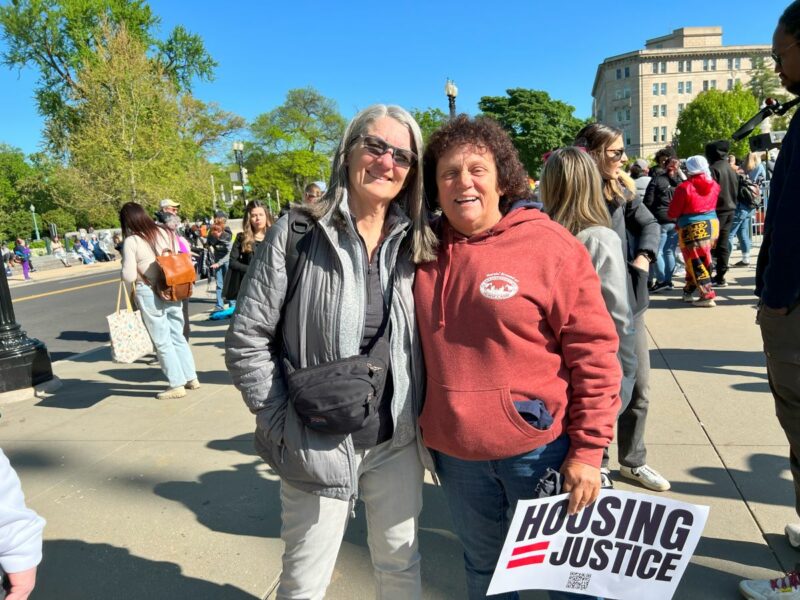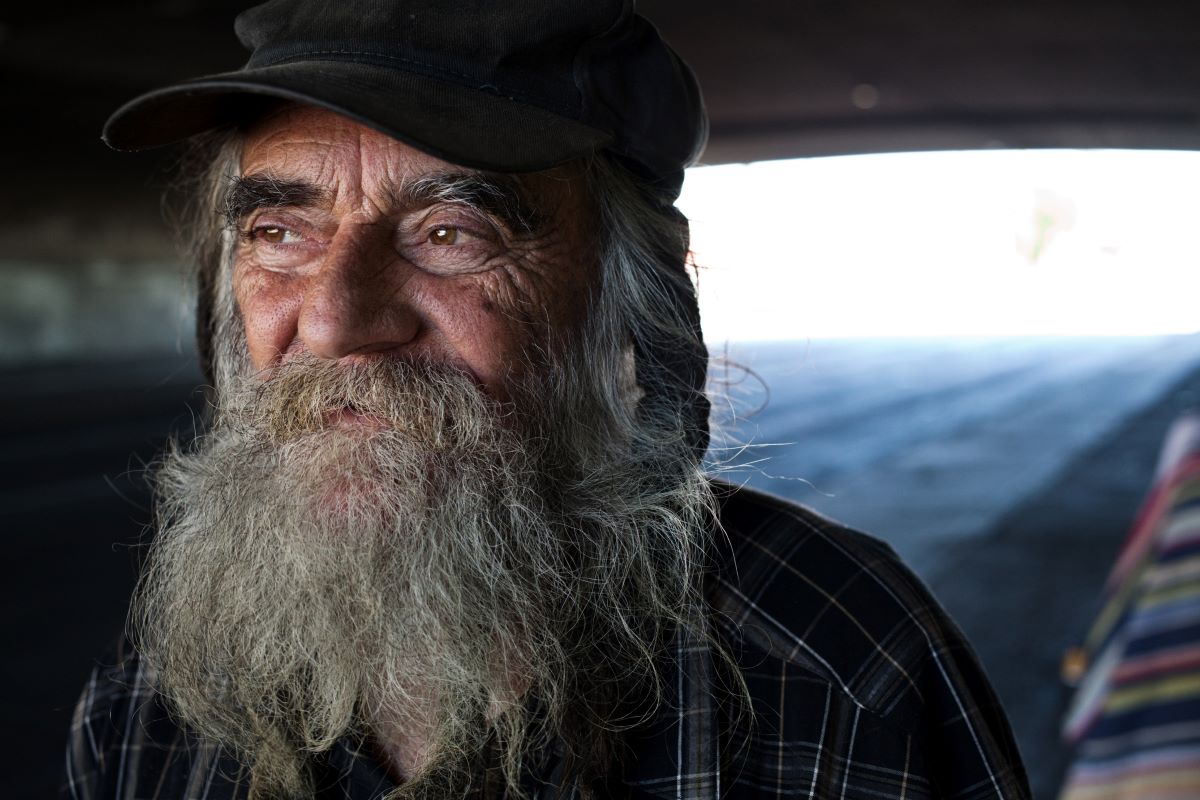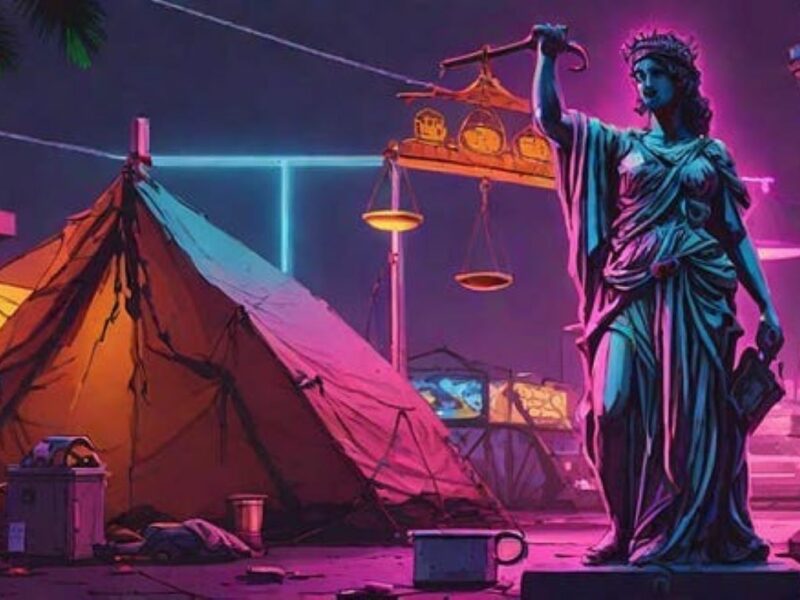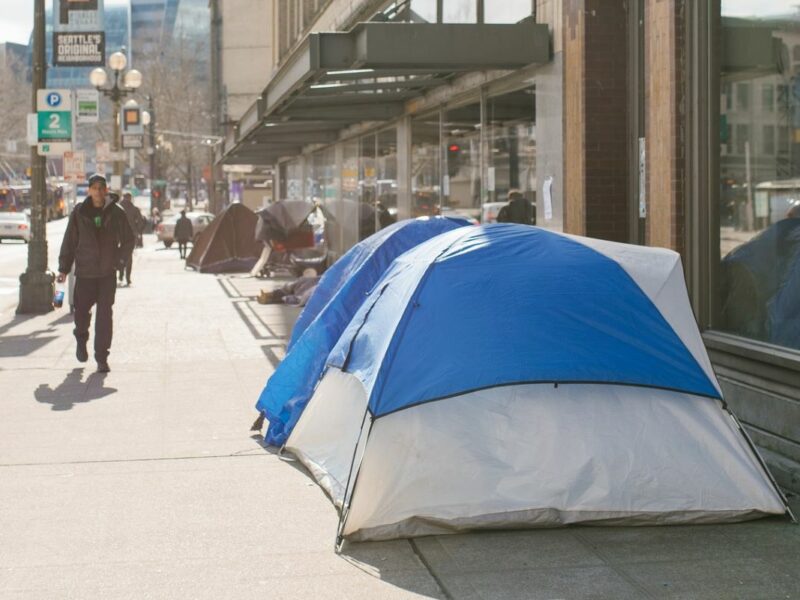Self-Sufficiency Is Not Sustainable. We Need Strong Communities Instead.
Most of us have fallen into the mindset of individualism at one point or another without realizing that all of its promises are hollow. Individualism promises that if you work hard enough, you’ll get to the top. If you plan well enough, nothing bad will ever happen to you. And if you take “personal responsibility,” you’ll have full control over your life.
It can’t deliver on any of these things- all it can do is blame the individual when they inevitably fail.
The myth of self-sufficiency keeps us disconnected from each other. It allows us to accept that some people don’t have access to the most basic resources they need to survive.
The Fragility of Self-Sufficiency
Self-sufficiency is extremely fragile. It’s more of a mindset than an actual state of being. And just like any other mindset, it can shatter when sufficiently challenged.
While you may feel like you’ve attained it for a time, it almost always depends upon things continuing to go relatively well in your life – or at least going poorly in an expected way, within certain parameters.
The reality is that anything can happen to anyone at any time. No person has the skills and resources needed to weather every storm on their own, no matter how much they hoard.
I recently couldn’t look away from a rerun marathon of that old reality show, Doomsday Preppers. It was strange seeing how fervently many of the people featured on the show believed that the moment people faced any minor inconvenience, they would immediately resort to violent looting and pillaging, even with all the evidence we have from actual emergency scenarios pointing to the contrary.
The mindset says more about the preppers than the imaginary versions of their neighbors they were terrified of.
What also struck me was how poorly many of the preppers scored within the framework of the show, no matter how many years’ worth of beans and rice they had stored away.
In fact, one of the few to score well was actually a person who had engaged his entire community in preparedness efforts and set up a system of looking after each other rather than trying to go it alone. We can all learn from that.
How Self-Sufficiency Keeps Us Separated
The self-sufficiency myth would be relatively harmless if all it did was keep people endlessly striving to add to their collection of emergency supplies and learn new bushcraft skills. But unfortunately, that’s just the tip of the iceberg.
When we buy into the idea that it’s a dog-eat-dog world or “every man for himself” in an emergency, that attitude bleeds into other areas of our everyday lives.
When we become convinced that each person can fend for themselves without help from anyone else, we begin to look down on those who can’t do that, not realizing that we could just as easily find ourselves in their position. We blame them for their circumstances, assuming they must have ended up there due to imaginary character flaws and moral failings.
We rarely consider the systemic forces that have forced them into their current position.
This line of thinking runs in the background, allowing us to accept that some people “don’t deserve” housing and other basic necessities of life.
Too many people don’t find it odd that there’s a price tag placed on simply staying alive. How powerful would it be if everyone started questioning the morality of charging for your monthly subscription to life? After all, it hasn’t always been this way. And it doesn’t have to stay this way.
Strong Communities Are the Antidote to Individualism
Since our government won’t provide a minimum standard of living for all of its citizens, we have to build alternate systems to make sure that no one is suffering and dying simply because they can’t afford to live.
This is best done at the hyper-local level. If you look around you’ll likely find that various mutual aid groups in your area have already started to do this work.
When we start engaging with our neighbors across various socioeconomic statuses, that fear that we’ve been conditioned to feel melts away as it becomes clear that they’re actually ordinary people just like us.
It’s empowering to discover how rich our communities are with knowledge and resources and how much we have to offer each other. It’s not uncommon for people to come into spaces like these feeling like they have nothing to offer because they have nothing that capitalism has placed a high monetary value on.
But everyone has something to offer. Discovering which unique skills and experiences you have to use in service of your community is eye-opening.
Take a few baby steps today to get involved with the community that already exists all around you. It could be something as simple as starting a conversation with some of your neighbors, leaving some extra groceries in a neighborhood free fridge, or joining your local Buy Nothing group to exchange goods and services at no cost.
You’ll be sure to learn a few things and make a few friends. Before long you could be organizing a rent drive of your own for your neighbors in need.
People-focused, community-led solutions like this are one of the best ways to take matters into our own hands and improve living conditions in our neighborhoods when our representatives aren’t listening. Pooling our resources to meet people’s needs today, without layers and layers of red tape and bureaucracy can be very powerful.
Engaging with our local community directly quickly proves that one person can make a difference and our problems aren’t too big to solve.











